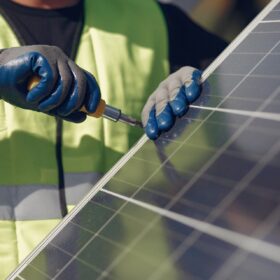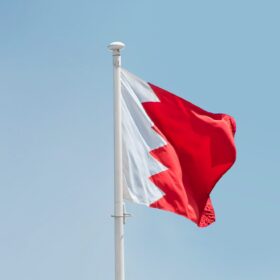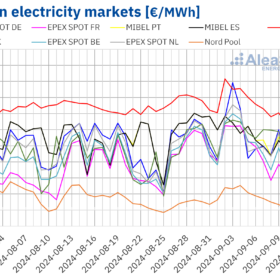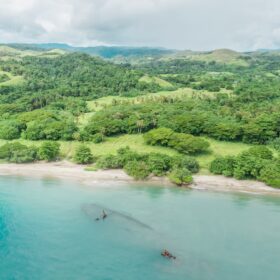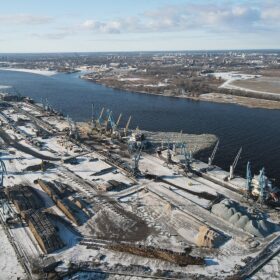Quebec to run 150 MW solar tender before end of year
The government of the Canadian province of Quebec is calling on utility Hydro-Quebec to run two solar tenders totaling 300 MW – one by the end of 2024 and another by the end of 2026. This marks the province’s first call for solar development on a commercial basis.
EDF, Masdar secure financing for 1.5 GW of solar near Abu Dhabi
EDF Renewables, Korea Western Power Co. (Kowepo), and Masdar have secured financing to build a 1.5 GW solar plant near Abu Dhabi, backed by a 30-year power purchase agreement (PPA) with Emirates Water and Electricity Co.
Ontario plans large-scale, competitive energy procurement
The government of the Canadian province of Ontario has directed the Independent Electricity System Operator (IESO) to finalize a design framework for a large-scale energy procurement exercise, which will include solar. It says that ground-mounted solar installations will be prohibited in prime agricultural areas.
Malaysia reaches 350 MW residential solar quota for net metering
Malaysia’s Sustainable Energy Development Authority reports that the 350 MW capacity allocated for residential solar under the net metering initiative has been reached. However, capacity remains available for government buildings, as well as commercial and industrial users under the same scheme.
Bahrain’s Khalifa Bin Salman Port to host 11.4 MW solar plant
India’s Bhageria Industries plans to build a utility-scale PV facility at the Khalifa Bin Salman Port of northeastern Bahrain. The project marks Bhageria’s first international solar venture.
Lower demand, falling gas prices drive European electricity prices down
AleaSoft Energy Forecasting says lower demand and gas prices, combined with higher wind and solar output, pushed electricity prices down across Europe last week. France, Italy, and Spain also set daily solar production records for September.
Renewables project to boost solar on Solomon Islands
The Solomon Islands Renewable Energy Development Project will finance two solar farms and a utility-scale grid-connected energy storage system on the Solomon Islands. The Asian Development Bank, Saudi Fund for Development, and Solomon Power are all financing the project.
DNV tool predicts hail probability at future solar sites
DNV, an independent energy expert and assurance specialist, has unveiled a service that assesses the probability of hail events at the site of future solar projects across North America, covering a period up to 30 years.
Port of Riga to host 100 MW solar plant
Lithuania’s SNG Solar is set to build a 100 MW solar plant in the port of Riga, Latvia. Upon completion, the facility will be one of the largest solar projects in the Baltics.
Scientists design all-back-contact transparent solar cell
A research team from South Korea’s Ulsan National Institute of Science & Technology (UNIST) has designed a wire-free transparent solar cell and module with all electrical contacts placed on the rear side. A 16 cm² module achieved a power conversion efficiency of 14.7% and successfully charged a smartphone using natural sunlight.

